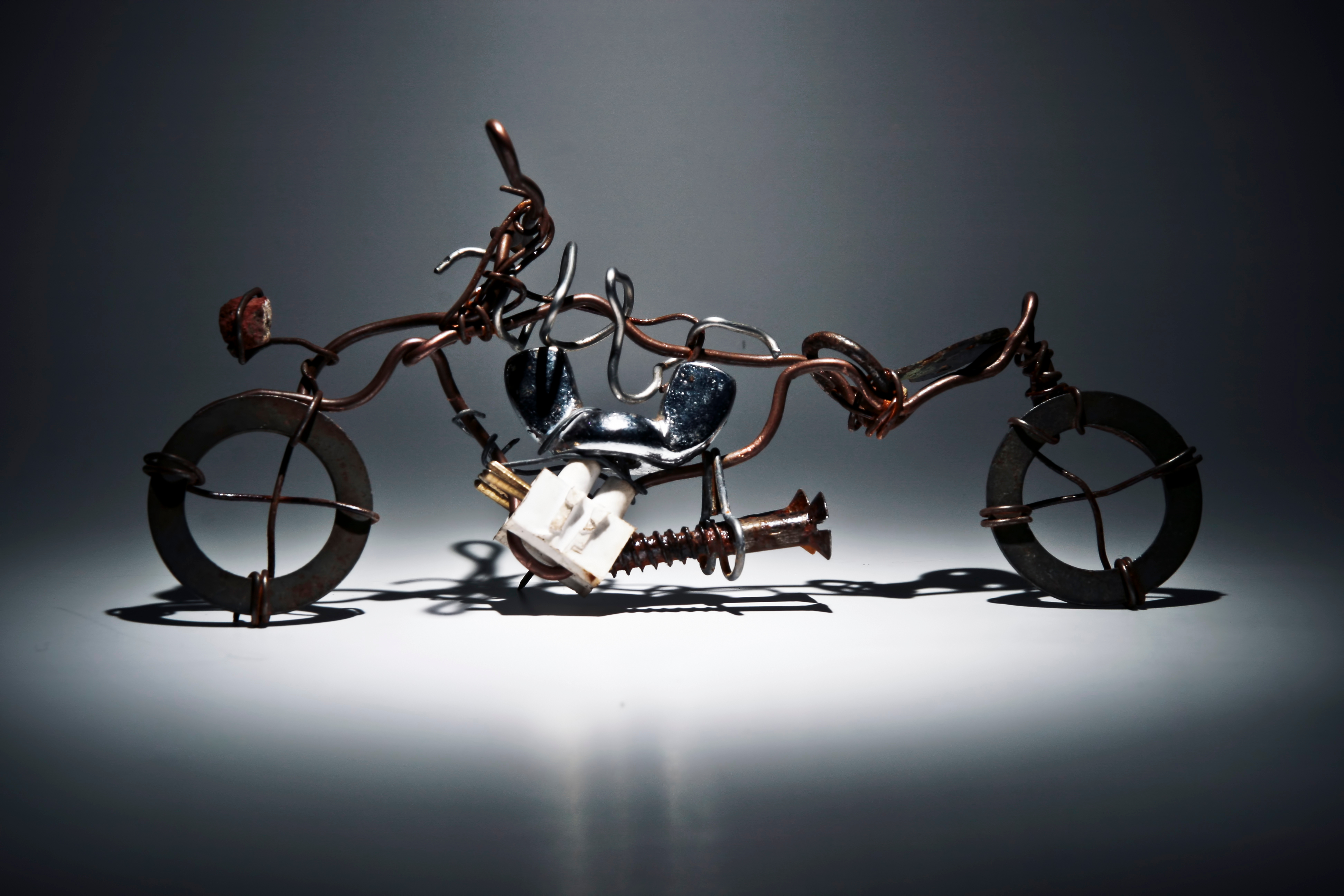
Happy National Upcycling Day! Today those who are dedicated to finding sustainable ways of living to save the planet and the more artistically inclined come together to find new ways to use the old things cluttering our lives and filling our waste dumps. To celebrate, we're taking a closer look at upcycling, how it is aligned with the overall product lifecycle sustainability and we consider some of the most creative & practical upcycling ideas out there.
As discussed in some of our previous blogs, the overall sustainability of a product depends on the sustainability of each phase of its life. Lifecycle sustainability looks at the different phases of a products life, from the extraction of raw materials to the end of its life. These phases can be intertwined. For example the choice of raw materials can affect the choices available at the end life of the product. Today, on National Upcycling Day, we focus on the last phase of a product’s life: upcycling.
What is upcycling?
We have all heard about recycling and its various positive, and sometimes negative, impacts on the environment. Upcycling is the creative reuse of items that have reached the end of their life regarding their original purpose. Yi et. al. (1) define upcycling as 'the conversion of waste materials to something useful or valuable', underlining it is a useful concept that can be applied in various industries helping with waste recycling and resource circulation. It is a relatively new word that has only been around since the late ’90s and its increasing popularity led it to be voted as the Word of the Year from Cambridge Dictionary in 2019. The Cambridge Dictionary definition of upcycling is ‘the activity of making new furniture, objects, etc. out of old or used things or waste material’.
What are the benefits of upcycling?
Far too many second-hand (and unsold) items end up in a landfill, instead of being repurposed and upcycled into something more useful. For example the value of unused clothing in wardrobes has been estimated at around £30 billion. It is also estimated £140 million worth of clothing goes into landfills each year(2). Upcycling brings with it various benefits. These fall into three main categories Environmental, Socio-economic and personal.
Environmental benefits
- Saving materials from landfill
These days, many brands and designers are making very cool stuff from old stuff. Plenty of items that were once en route to landfill have been reclaimed by some very creative people.
- Reducing what goes into landfill
We’ve become so used to things being mass manufactured and made in a heartbeat that we buy things as quickly as we throw things away.
- Minimal use of natural resources
Upcycling existing resources means that we don’t have to use any new raw materials in the production process. Did you know that it takes 2,700 litres to produce the cotton needed to make a single t-shirt?
Social and Economic
- Celebrating artisan work and old school craftsmanship
Behind every upcycled product, there is a creative maker who strongly believes in a level of craftsmanship that we just don’t see very much anymore.
- Supporting local and rural industry
Another social and economic benefit of upcycling is that it supports small local businesses as well as rural village industries.
- Reduced manufacturing costs
If designers make items from reclaimed materials, this can drastically reduce their manufacturing costs.
Personal benefits
- Doing your bit for Mother Nature
Nothing beats that warm and fuzzy feeling you get inside when you’ve done something great for the planet.
- Crafty repair skills
Repairing an item and giving it a new life is a great skill and a wonderful feeling.
- One-of-a-kind items
Whether you’re upcycling things yourself or buying products from designers, it’s always nice to know that you have something that is completely unique.
So what can we upcycle?
There are various examples of items that can be upcycled from small marmalade jar and old t-shirt to wooden furniture and old bicycles. Upcycling is something that can satisfy both creative and practical minds. Commonly upcycled materials include:
- Inner tubes from tyres
- Plastic bags
- Plastic bottles
- Furniture
- Leather off-cuts
- Oak Barrels
- Old clothes
- Bicycle chains
You can hang foldable chairs on the wall to make a clothing unit, use old cutting board for shelves, jars as vases and old clothing to make a blanket. There are endless possibilities! Of course let’s not forget packaging materials. The packaging that comes with a new product can be used for various purposes. Build desks from the thick cardboard or use them as play forts for children or pets. Plastic bags can be used to organize drawers and spaces while some wrapping materials can be reused as curtains or dividers.
Here are some interesting examples(3):
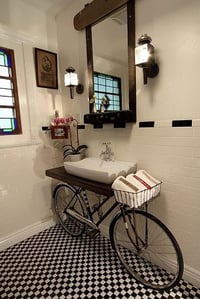
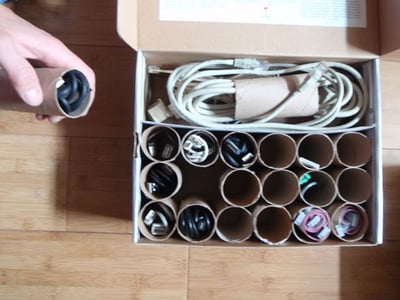
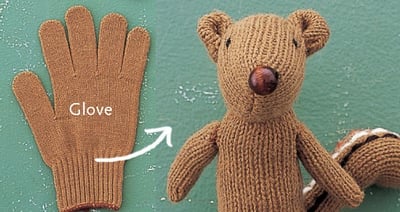
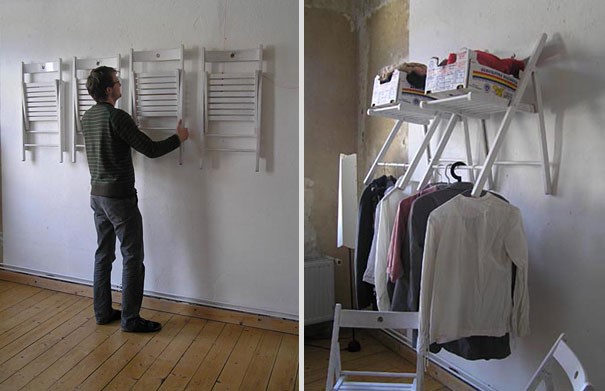
I personally am a huge fan of converting jars into vases 😊!

For more ideas on how to recycle and reuse your household waste, check out this interesting article from Porch which includes some great tips on how to follow the 3 R's rule (reduce, reuse, recycle).
Celebrate Upcycling Day!
So, what better way to celebrate National Upcycling Day than by finding a new purpose for one of your old items! Changing our habits is the place to start when it comes to sustainability. Both upcycling and recycling have their place in our efforts to combat climate change and reduce the negative impact we have on the planet. Neither is better than the other but rather, they play different roles in the ongoing fight against climate disaster and should be used in combination. What they have in common is their greatest strength – they reduce waste by encouraging us to be more mindful of our habits as consumers.
[1] http://eeer.org/journal/view.php?number=932
[2] http://www.wrap.org.uk/content/clothing-waste-prevention
Do you want to build more sustainability into your marketing goods? ASL's experts are here to help you to create more environmentally friendly marketing campaigns? Why not book a free Sustainability Workshop for your marketing team - we will build a bespoke, interactive workshop session tailored specifically to your brand, delivered in person or online, as required.
Contact us to book your Sustainability Workshop today
ASL Global is committed to conducting our business in a responsible & sustainable way. Acting with passion and integrity, our people work with customers, suppliers and other stakeholders to make a positive contribution to social responsibility and environmental sustainability in communities around the world.

Discover more about our ONE WORLD initiative







